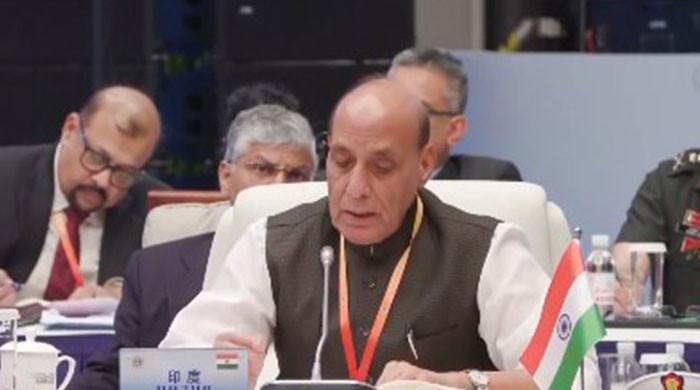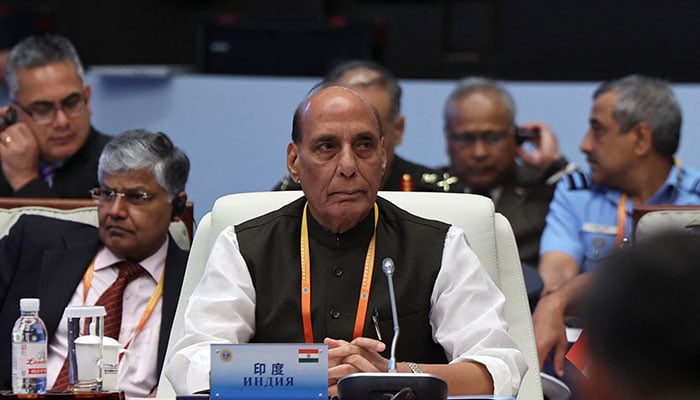India has reportedly declined to sign a joint statement issued by a high-level Shanghai Cooperation Organisation (SCO) meeting in China after it mentioned terrorist activities in Pakistan’s Balochistan.
Singh, as reported by the Times of India, the SCO Defence Ministers’ meeting’s joint document also failed to feature any reference to the Pahalgam incident — which saw several tourists being killed in Indian Illegally Occupied Jammu and Kashmir (IIOJK).
The SCO huddle, being held in Qingdao and bringing together 10 member states’ ministers — including those from Russia, China, India and Pakistan. The meeting decided to not issue a joint statement due to India’s refusal and lack of consensus on the terrorism issue.
The development comes a day after Pakistan’s Foreign Office clarified that Defence Minister Khawaja Asif will be representing Islamabad at the SCO moot, however, there was no scheduled meeting between him and his Indian counterpart Singh.
The clarification followed claims by Turkish media that there was a possibility of a meeting between Pakistani and Indian defence ministers — marking the first such incident after the recent armed conflict between the two nuclear-armed neighbours which saw both sides carrying out cross-border strikes.
Earlier, National Security Advisor (NSA) Lt Gen Asim Malik attended the 20th meeting of the secretaries of the Security Council of SCO Member States on Tuesday in Beijing, China.
In addition to interacting with Chinese leadership, during the visit, the NSA delivered an important speech reiterating Pakistan’s stance on the global, and regional situation and contributions to peace and security, besides meetings with key leadership of SCO countries to enhance bilateral and security cooperation.
Speaking at the SCO meeting, Singh accentuated New Delhi’s concerns regarding terrorism and urged the member countries to take a principled stance on the matter, reported NDTV.
“The biggest challenges in our region are related to peace, security and trust deficit [….] India believes that reformed multilateralism can help build cooperation to prevent conflict between countries by creating mechanisms for dialogue and collaboration,” the Indian defence czar said.


